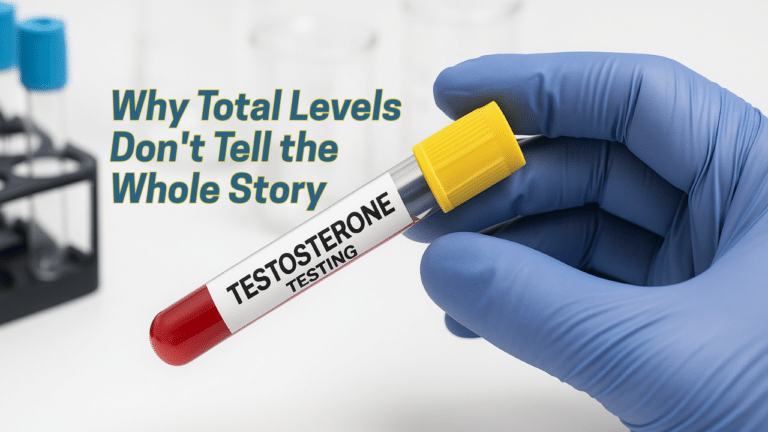The supplement industry is flooded with products promising to boost immunity, but separating science from marketing hype can be challenging for consumers seeking genuine immune support. While no supplement can guarantee protection against illness, certain vitamins, minerals, and natural compounds have demonstrated measurable benefits for immune function when used appropriately. Understanding which supplements are backed by solid research—and how to use them safely and effectively—can help you make informed decisions about supporting your body’s natural defenses.
The Role of Supplements in Immune Health
Supplements serve as a complement to, not a replacement for, the foundational pillars of immune health: nutritious eating, regular exercise, adequate sleep, and stress management. Even the most well-researched immune-supporting supplements cannot compensate for poor lifestyle habits or underlying health conditions that compromise immune function.
The key to effective supplementation lies in understanding your individual needs through proper testing and assessment. Many people assume they need immune support supplements without knowing whether they have specific deficiencies that could benefit from targeted intervention. Laboratory testing can reveal deficiencies in key nutrients like vitamin D or zinc, allowing for personalized supplementation strategies that address actual gaps rather than following generic recommendations.
Why Testing Matters Before Supplementing
Before beginning any supplement regimen, understanding your baseline nutritional status provides crucial information for safe and effective supplementation. Some nutrients can accumulate to toxic levels with excessive supplementation, while others may interact with medications or existing health conditions. Testing also helps establish whether symptoms you attribute to poor immunity might actually stem from correctable nutritional deficiencies.
Key Evidence-Based Supplements
Among the hundreds of products marketed for immune support, only a handful have accumulated substantial scientific evidence demonstrating meaningful benefits. These research-backed supplements have shown consistent results across multiple studies and established clear mechanisms for supporting immune function.
Vitamin D
Vitamin D functions more like a hormone than a traditional vitamin, with receptors found throughout the immune system that help regulate both innate and adaptive immune responses. This nutrient plays crucial roles in activating immune cells, modulating inflammatory responses, and maintaining the integrity of barrier tissues that prevent pathogen entry.
Vitamin D supplementation decreased respiratory infection risk, especially in deficient people, with the most dramatic benefits seen in individuals with baseline deficiency. Studies consistently show that people with adequate vitamin D levels experience fewer respiratory tract infections and less severe symptoms when they do become ill.
The challenge with vitamin D supplementation lies in determining optimal dosing, as individual needs vary significantly based on factors like geographic location, skin pigmentation, age, and existing health conditions. While general recommendations suggest 600 IU daily for most adults, many people require higher doses to achieve optimal blood levels, particularly those living in northern climates or with limited sun exposure.
Testing vitamin D levels through a simple blood test allows for personalized dosing recommendations. Optimal blood levels typically range from 30-50 ng/mL, though some research suggests levels up to 60 ng/mL may provide additional immune benefits. Regular monitoring prevents both deficiency and the rare but serious complications associated with vitamin D toxicity.
Zinc
Zinc serves as a cofactor for over 300 enzymatic reactions in the body, many of which directly support immune cell development, activation, and function. This essential mineral helps maintain the integrity of skin and mucous membranes, supports white blood cell production, and plays key roles in both innate and adaptive immune responses.
Research demonstrates that zinc supplementation begun within 24 hours of cold symptoms can reduce duration and severity, with some studies showing reductions in cold duration of up to 40%. The timing of zinc supplementation appears critical, as benefits diminish significantly when supplementation begins after the first day of symptoms.
For immune support, zinc lozenges or tablets providing 8-15 mg of elemental zinc are commonly used during acute illness. However, long-term supplementation should not exceed 40 mg daily, as excessive zinc can interfere with copper absorption and immune function. Zinc deficiency affects approximately 2 billion people worldwide, making targeted supplementation particularly valuable for those with inadequate dietary intake.
Signs of zinc deficiency include frequent infections, slow wound healing, hair loss, and changes in taste or smell. Since these symptoms can indicate various health conditions, laboratory testing helps confirm whether zinc supplementation would be beneficial and guides appropriate dosing strategies.
Vitamin C
As a potent antioxidant and cofactor for numerous immune processes, vitamin C supports white blood cell function, enhances iron absorption, and helps maintain the integrity of skin and other barrier tissues. While vitamin C deficiency is relatively rare in developed countries, marginal deficiency may compromise immune function even when it doesn’t cause obvious symptoms.
Vitamin C supplementation reduced common cold risk by 4% overall and shortened symptom duration by 9%, with more pronounced benefits observed in people exposed to extreme physical stress or cold environments. Regular supplementation appears more beneficial than taking vitamin C only after symptoms begin.
Effective doses for immune support typically range from 250-1,000 mg daily, though the upper safe limit is 2,000 mg daily for adults. Higher doses may cause gastrointestinal upset and provide no additional immune benefits, as the body’s ability to absorb vitamin C decreases as dose size increases.
Unlike some vitamins, vitamin C is water-soluble and readily excreted, making toxicity unlikely with reasonable supplementation. However, people with certain health conditions, such as kidney stones or iron overload disorders, should consult healthcare providers before beginning vitamin C supplementation.
Herbal and Natural Supplements
Beyond traditional vitamins and minerals, several herbal and natural compounds show promise for immune support, though the evidence is generally less robust than for vitamin D, zinc, and vitamin C. These supplements often have complex active compounds that may work synergistically, making their effects harder to study and standardize.
Elderberry has gained popularity for its potential antiviral properties, with some studies suggesting it may reduce the duration and severity of cold and flu symptoms. However, most research has been conducted on specific elderberry extracts, and the quality and potency of commercial products vary widely.
Medicinal mushrooms like cordyceps and turkey tail have emerging evidence for immune-enhancing effects, with various species containing compounds that may modulate immune cell activity. While traditionally used in various healing systems, modern research is still establishing optimal dosing and standardization for these complex natural products.
Other herbs including garlic, astragalus, andrographis, and licorice show potential immunomodulating properties in preliminary studies, but clinical evidence remains limited. These compounds may interact with medications or have contraindications in certain health conditions, making professional guidance particularly important.
What Doesn’t Work—or Needs More Proof
The supplement industry often promotes products with dramatic claims based on limited or preliminary research. Many supplements marketed for immune support lack sufficient clinical evidence to support their use, while others may actually interfere with normal immune function when taken inappropriately.
Megadose supplementation, particularly with fat-soluble vitamins like A and E, can suppress rather than enhance immune function while increasing the risk of toxicity. Similarly, some herbal combinations or proprietary blends make broad claims without demonstrating that their specific formulations provide benefits beyond individual components.
The Problem with Overhyped Products
Many immune support products combine multiple ingredients in doses too small to be effective, banking on the idea that more ingredients equal better results. These shotgun approaches often result in products that provide inadequate amounts of potentially beneficial compounds while increasing the risk of interactions or adverse effects.
Single-ingredient supplements with established research are generally preferable to complex formulations with unproven combinations. This approach allows for better monitoring of effects and reduces the likelihood of unexpected interactions or side effects.
Supplement Safety and Quality Considerations
The dietary supplement industry operates under different regulations than pharmaceuticals, placing greater responsibility on consumers to make informed choices about product quality and safety. Understanding how to evaluate supplements for purity, potency, and safety helps ensure that supplementation supports rather than compromises health goals.
Third-party testing organizations like USP (United States Pharmacopeia), NSF International, and ConsumerLab provide independent verification of supplement quality. Products bearing these certifications have been tested for purity, potency, and the absence of harmful contaminants like heavy metals or microorganisms.
Avoiding Dangerous Interactions
Some immune support supplements can interact with medications or exacerbate existing health conditions. Vitamin K in multivitamins can interfere with blood-thinning medications, while high-dose vitamin C may increase iron absorption to dangerous levels in people with iron overload conditions.
Herbal supplements present particular interaction risks, as many contain pharmacologically active compounds that can enhance or inhibit the effects of prescription medications. St. John’s wort, commonly included in immune support formulations, can reduce the effectiveness of numerous medications by increasing their metabolism.
Healthcare providers can help identify potential interactions and contraindications, particularly for individuals taking multiple medications or managing chronic health conditions. This professional guidance becomes especially important when considering herbal supplements or high-dose nutrients.
Practical Guidance for Patients
Effective supplementation for immune support requires strategic timing, appropriate dosing, and integration with other health-promoting behaviors. Understanding when and how to use supplements maximizes their potential benefits while minimizing risks and unnecessary expenses.
Seasonal supplementation may be appropriate for some individuals, with increased vitamin D during winter months or zinc lozenges during cold and flu season. However, maintaining adequate baseline levels of key nutrients through consistent, moderate supplementation often provides better immune support than sporadic high-dose interventions.
Timing and Integration Strategies
The timing of supplement intake can significantly affect absorption and effectiveness. Fat-soluble vitamins like vitamin D are best taken with meals containing healthy fats, while zinc is most effective when taken on an empty stomach, though this may cause nausea in sensitive individuals.
Splitting doses throughout the day often improves absorption and reduces the likelihood of gastrointestinal side effects. For water-soluble vitamins like vitamin C, divided doses maintain more consistent blood levels than single large doses.
The Role of Testing in Personalization
Walk-In Lab offers convenient access to testing that can guide supplement decisions, including vitamin D levels, comprehensive metabolic panels, and specialized micronutrient assessments. These tests help identify specific deficiencies that may be compromising immune function and provide baseline measurements for monitoring the effectiveness of supplementation.
Regular retesting allows for adjustments in supplementation strategies based on individual response and changing health needs. This personalized approach helps optimize immune support while avoiding the risks and expenses associated with unnecessary or excessive supplementation.
Frequently Asked Questions
Which supplements have the strongest evidence for immune support?
Vitamin D, zinc, and vitamin C have the most robust research supporting their roles in immune function. Vitamin D helps regulate immune cell activity and reduces respiratory infection risk, particularly in deficient individuals. Zinc supports immune cell development and can shorten cold duration when taken early in illness. Vitamin C acts as an antioxidant and supports various immune processes, with modest benefits for reducing cold severity and duration.
What are safe dosages for Vitamin D, C, and Zinc?
Safe and effective dosages vary based on individual factors and health status. Vitamin D typically ranges from 600-4,000 IU daily, with optimal dosing determined through blood testing. Zinc supplementation should not exceed 40 mg daily for extended periods, with 8-15 mg being appropriate for most immune support applications. Vitamin C doses of 250-1,000 mg daily are commonly used, with an upper safe limit of 2,000 mg daily for adults.
Do herbal supplements really work for immunity?
Some herbal supplements show promising preliminary research for immune support, but evidence is generally less robust than for vitamin and mineral supplements. Elderberry, certain medicinal mushrooms, and traditional herbs like astragalus have shown potential benefits in some studies, but more research is needed to establish optimal dosing and effectiveness. Quality and standardization also vary significantly among herbal products.
Can supplements prevent infections?
No supplement can guarantee protection against infections, but certain supplements may reduce infection risk, severity, or duration when used appropriately. Supplements work best when addressing specific nutritional deficiencies and supporting overall immune function rather than providing acute protection against pathogens. They should be viewed as one component of a comprehensive approach to immune health.
How do I choose safe and effective supplement brands?
Look for products from reputable manufacturers that undergo third-party testing for purity and potency. Certifications from organizations like USP, NSF, or ConsumerLab indicate independent quality verification. Choose single-ingredient supplements over complex formulations when possible, and verify that dosages align with research-supported ranges. Avoid products making unrealistic claims or lacking clear ingredient labeling.
Conclusion
The evidence clearly supports the immune-enhancing potential of certain targeted supplements, particularly vitamin D, zinc, and vitamin C when used appropriately. These nutrients have demonstrated consistent benefits across multiple studies and established mechanisms for supporting various aspects of immune function.
However, effective supplementation requires more than simply taking popular immune support products. Testing to identify individual deficiencies, choosing high-quality products from reputable manufacturers, and integrating supplementation with healthy lifestyle practices provides the best foundation for immune support.
While emerging research on herbal supplements and natural compounds shows promise, the evidence remains preliminary compared to established nutrients. A conservative approach focusing on well-researched supplements with clear safety profiles offers the most reliable path to immune support through supplementation.
Ready to personalize your immune support strategy? Order your immune health test today at Walk-In Lab to identify specific nutritional deficiencies and create a targeted supplementation plan based on your individual needs. Understanding your baseline vitamin D, zinc status, and other key markers takes the guesswork out of immune support supplementation.
This article is for informational purposes only and is not intended as medical advice. Please consult with a healthcare provider before beginning any supplement regimen, especially if you have existing health conditions or take medications.





